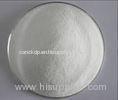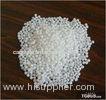|
AMINO LIFE(WUXI)BIOTECH CO.,LTD
|
Amino Acid For men amino acids muscle building
| Place of Origin: | Zhejiang, China (Mainland) |
|
|
|
| Add to My Favorites | |
| HiSupplier Escrow |
Product Detail
BCAA 312 Leucine Isol
BCAA 312 Leucine Isoleucine Valine Branched Chain Amino Acids
Quick Detail:
PRODUCT NAME: BCAA(BRANCHED CHAIN AMINO ACIDS),
FORMULA: 3:1:2(50% L-LEUCINE, 16.7%L-ISOLEUCINE,
33.3% L-VALINE):
MAIN ESSENTIAL AMINO ACIDS
APPEARANCE:FINE POWDER
COLOR: WHITE OR OFFWHITE
SMELL: SLIGHTLY ODOUR;
TASTE: SLIGHTLY BITTER;
Description:
The branched-chain amino acids (BCAA) – leucine, isoleucine, and valine – are unique among amino acids in that they are primarily metabolized extrahepatically in skeletal muscle. 1,2In muscle, the BCAA serve as both an important energy substrate during exercise and periods of stress, and as a precursor for the synthesis of other amino acids and proteins. 3 Initial research into BCAA focused on both their anabolic effects in particular in catabolic disease states, and on their theoretical potential for preventing encephalopathy in liver failure. Accordingly, BCAA were promoted as beneficial supplements in patients suffering from such conditions. However, a number of equivocal clinical studies have resulted in a general loss of interest in BCAA as a nutritional supplement.
The BCAA exert significant influences on glutamine metabolism. 4 Glutamine is recognized as an important nutrient to many rapidly dividing cells in the body, especially in the gut and the immune system. Hence, conventional parenteral or enteral diets that are deficient in glutamine (because of its instability in solution) are associated with gut atrophy and immune deficiency. Enriching parenteral nutrition with glutamine serves to partially reverse this gut atrophy. 5 The infusion of BCAA-enriched parenteral nutrition has been found to have similar effects on the gut and is most likely serving to increase endogenous synthesis of glutamine. 5 Nonetheless, the practical application of this knowledge has never been achieved.
There is likely still to be a role for BCAA in the nutritional management of patients with catabolic disease states. This is especially so as the management of such patients is approached with combinations of both anabolic agents (e.g. growth hormone) and specific nutrients (e.g. glutamine, arginine, BCAA). This review aims to cover our current understanding of the biochemistry of BCAA, and their clinical utility in various pathological states.
Applications:
DRINK; SOLID DRINK; INSTANT BEVERAGE POWDER; BEVERAGE POWDER; PROTEIN BEVERAGE POWDER; TABLETS;CAPSULES; INJECTION;
Specifications:
|
Specification Standard Item |
IN HOUSE STANDARD |
|
Description |
White to off-white Powder |
|
Assay(TITRATION) |
≥95% |
|
Leucine Content(HPLC) |
45.055.0% |
|
Isoleucine Content(HPLC) |
13.2.20.2% |
|
Valine Content(HPLC) |
3037% |
|
Bulk Density |
0.250.45g/ml |
|
Tapped Density |
0.450.65g/ml |
|
Heavy metals(Pb) |
≤10ppm |
|
Lead |
≤3ppm |
|
≤1ppm |
|
|
Arsenic(As) |
≤1ppm |
|
Mercury |
≤0.1ppm |
|
Loss on drying |
≤0.50% |
|
Residue on ig
|













